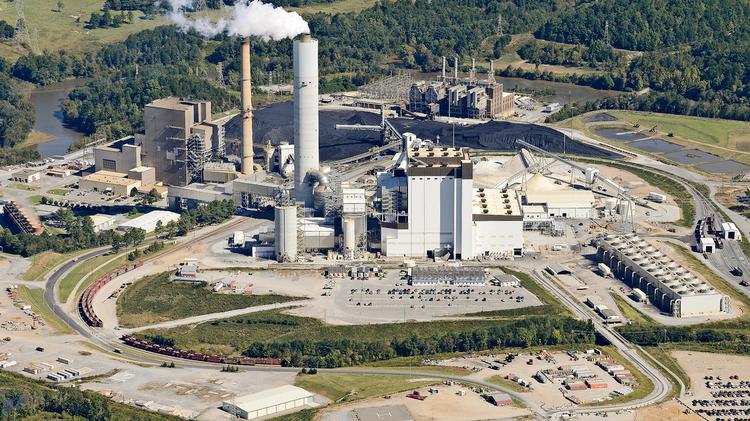N.C. Utilities Commission Decision on Duke Energy’s Proposed Asheville Gas Plant Mixed, Conservation Groups Say
CHAPEL HILL, N.C.–Conservation groups expressed some reservations about today’s mixed decision by the North Carolina Utilities Commission on Duke Energy’s proposal to build a new gas-fired power plant in Western North Carolina. In a brief Notice of Decision, the Commission announced its decision to issue a “certificate of public convenience and necessity” to Duke for two 280 megawatt natural gas combined cycle units to replace the 379 MW coal plant when it retires in 2020. At the same time, the commission respected the recommendation of its Public Staff and calls from the public by denying Duke’s request for early approval of a third, 186 MW combustion turbine unit that Duke claimed it might need in 2023, if at all. Under a special law passed in 2015, the Commission had only 45 days to make a decision on Duke’s proposal. The commission will issue a more detailed decision at a later date.
Comments from the conservation groups follow:
“We’re pleased that the Commission has denied permission to build the third, 186 MW ‘peaking unit,’” said Joan Walker, campaign director at MountainTrue. “This decision is another step toward the retirement of the Lake Julian coal plant and one that gives Duke Energy further incentive to partner with our communities, build more renewable infrastructure, and expand access to energy efficiency programs which would reduce energy use and utility bills for families and businesses across the WNC region. We regret the Utilities Commission’s approval of the two 280 megawatt natural gas combined-cycle units that expert analysis determined were unjustified and oversized and not the best use of ratepayer dollars. Natural gas prices may be low now but we fear that over-investment in such a large plant will saddle our region’s families and businesses with higher electricity bills in the future.”
“We’re disappointed in the North Carolina Utilities Commission’s decision to approve Duke Energy’s plans for a huge new gas-fired power plant near Asheville,” said Gudrun Thompson, the senior attorney at the Southern Environmental Law Center who represented MountainTrue and Sierra Club in the proceedings. “We welcome Duke’s long-overdue commitments to retire the Asheville coal plant in 2020 and clean up the leaking coal ash basins at the site. And we agree with the commission’s decision to deny Duke’s premature application for the third unit. But replacing the coal plant with an oversized, billion-dollar gas plant will lock the region into dependence on dirty fossil-fueled power for decades when the rest of the nation is transitioning to cleaner, cheaper energy resources.”
“It’s time to transition off of dirty, outdated fossil fuels in Western North Carolina,” said Emma Greenbaum, North Carolina organizing representative for Sierra Club. “Though we are pleased that the NCUC has decided to deny Duke Energy’s request for a third natural gas unit, we are disheartened that the approved plan allows for this oversized natural gas project to go forward. It is unfortunate that we’re being forced to continue on a climate-polluting path when energy efficiency and renewables continue to be the best, least cost solution for consumers and the environment. We will continue to advocate for the expansion of clean energy in our region and across the state as a transition to clean energy is the only responsible long-term solution to our energy needs.”
###
The Southern Environmental Law Center is a regional nonprofit using the power of the law to protect the health and environment of the Southeast (Virginia, Tennessee, North and South Carolina, Georgia, and Alabama). Founded in 1986, SELC’s team of almost 60 legal and policy experts represent more than 100 partner groups on issues of climate change and energy, air and water quality, forests, the coast and wetlands, transportation, and land use.
![]()





 New time and place!
New time and place!